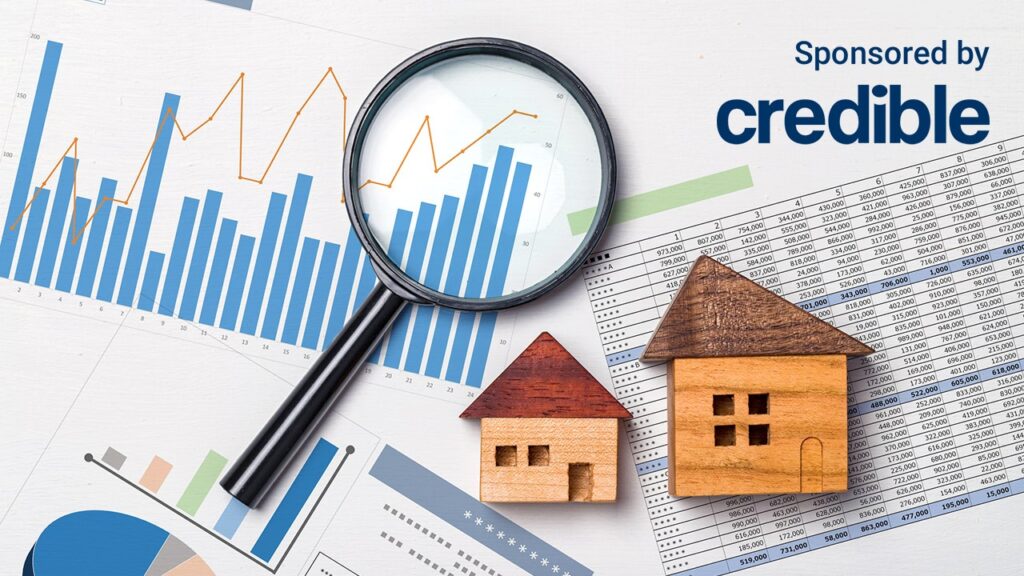Credit Disputes During Home Loan Process

This guide covers credit disputes during home loan process. Credit disputes during home loan process is not allowed. There are certain exemptions when it comes to credit disputes during home loan process. Medical collections are exempt from credit disputes during home mortgage process. Zero balances are exempt on non-medical collections. If borrowers have less than $1,000 in outstanding non-medical collections, those are exempt.
Charge-offs cannot be disputed. Credit disputes on collections and/or derogatory credit that is 24 months or older are exempt from retraction.
Loan officers should not issue pre-approval letters if borrowers have credit disputes during home loan process until all disputes have been retracted. If a loan officer thinks that by retracting credit disputes it will lower your credit scores, the loan officer many instruct not to remove the disputes. VA and FHA loans allows for manual underwriting. If credit disputes will be lowering credit scores, leave the credit disputes alone and the loan officer can downgrade it to manual underwriting.
What Are Credit Disputes
Disputing items on your credit report during the home loan process requires careful strategizing. Credit disputes can halt the mortgage process for several reasons. Fitting a dispute on your credit report can trigger a series of actions and considerations from lenders. Here’s a detailed look at why this happens: In the following paragraphs, we will cover some key considerations. Timing: It’s best to identify and dispute any inaccuracies on your credit report before applying for a mortgage, as the dispute process can take 30-45 days. Once you apply, most lenders will want to see your credit holding steady without new disputes until closing.
What Are Credit Disputes During the Mortgage Process?
Credit disputes are often common when a consumer tries to repair their credit. This is often done by disputing a negative item such as a collection account, charge-off, late payments, judgments, or other derogatory items off their credit report by disputing the negative credit item to the three credit reporting agencies.
The way credit disputes work is when you have a derogatory credit item. Consumers write to the credit bureaus stating that the item does not belong to them or it is wrong. The credit reporting agency then notifies the creditor about the credit dispute
The creditor has thirty days to respond to the credit reporting agencies with proof validating the credit dispute. The derogatory stays on the credit report if the creditor validates the consumer’s dispute. If the creditor does not respond in 30 days to the credit bureaus, then by federal law, the credit bureaus need to delete the negative item from the consumer’s credit report.
What Types of Items is Credit Disputes in Mortgage Process Allowed?
Many consumers dispute all derogatory items from their credit reports hoping the creditor does not respond back. The credit bureaus need to remove the negative derogatory credit item if creditors do not validate the credit disputes. Often times this works. If the creditor responds back, consumers often dispute it again for the second go around and third go around.
Does Credit Repair Work
Many homebuyers often hire a credit repair company prior to getting ready to apply for mortgage. Going through credit repair prior or during mortgage process can often do more damage then good. Credit Repair does work but any credit disputes in mortgage process will halt the loan approval process. I have seen charge offs, collection accounts, bankruptcies, foreclosures, late payments, tax liens, and judgments be removed from credit reports.
There are many savvy creative credit repair consultants who know the ins and outs of loopholes and can get derogatory items completely removed from credit reports.
However, if home buyers planning on purchasing a home or refinancing in the near short term, there are strict policies on credit dispute. FHA, VA, USDA, Fannie Mae, Freddie Mac do not allow dispute during mortgage process. The mortgage process will be suspended until all disputes have been retracted. There are times where it is difficult to remove a dispute. Credit Scores often drops when consumers retract disputes. Click here to get more about credit repair for mortgage
How The Credit Dispute Process Work
Credit disputes are not allowed during the mortgage loan process. You can have credit disputes as long as you have documentation that the credit tradeline disputed is legitimate and you have documentation to prove it. Handling credit disputes during the mortgage loan process is critical as it can directly impact your ability to secure a loan and the terms you receive. Here are key steps to manage credit disputes effectively during this time:
Review Your Credit Report Early
Before applying for a mortgage, obtain a copy of your credit report from all three major credit bureaus (Experian, Equifax, and TransUnion). This will allow you to identify any inaccuracies or issues that need disputing.
Credit Dispute s in Mortgage Process on Inaccuracies Allowed
If you find errors on your credit report, credit disputes in mortgage process on inaccuracies is allowed. Dispute the inaccuracies with the credit bureau. It’s important to do this before you start the mortgage application process because disputes can take time to resolve, and unresolved disputes can delay or negatively affect your mortgage approval. When you file a dispute, include all necessary documentation that supports your case. This might include bank statements, letters, or legal documents. Clear and comprehensive proof can help resolve disputes faster.
Monitor Your Credit
After you’ve initiated disputes, check your credit report to see if the changes have been made. The credit bureaus typically have 30 days to investigate and respond to your dispute. Inform your mortgage lender of any disputes you are making, as this can affect their assessment of your creditworthiness. Some lenders require that all disputes be resolved before proceeding with the loan application. Disputing credit report errors can temporarily lower your credit score because the disputed accounts are sometimes excluded from your score calculation until the dispute is resolved. Discuss the timing of your disputes with a financial advisor or the lender to determine the best strategy for your situation.
Avoid New Credit Disputes in Mortgage Process
Once you’ve started the mortgage application process, avoid initiating new disputes unless necessary, which can cause delays. Lenders may require that disputes be resolved before moving forward with the loan. Knowing how credit disputes work can ease the stress of dealing with them during the mortgage process. Familiarize yourself with the guidelines provided by the Consumer Financial Protection Bureau or other financial advisory services. Handling credit disputes effectively requires proactive management and clear communication with credit bureaus and your mortgage lender. Ensuring your credit report accurately reflects your credit history before applying for a mortgage can save you time and money in the long run.
Mortgage Guidelines on Credit Disputes in Mortgage Process
Borrowers applying for a mortgage loan and have a dispute and the derogatory item has a credit balance of $1,000 or greater (total outstanding collections), mortgage process cannot proceed until the disputed item is retracted. Borrowers disputing a derogatory item that has zero balance are exempt from retracting disputes. Medical collection disputes are exempt. Borrowers can have an outstanding unsatisfied balance on any medical collection accounts and have a dispute. Medical disputes are exempt no matter how much the outstanding balance.
How Can I Remove Credit Disputes During The Mortgage Process?
In theory, this is how it works. In real life, credit bureaus tend not to remove derogatory items from the consumer’s report even after 30 days of the creditor not getting back to them. The consumer has the verbiage that the credit item is in dispute. This can last many months. When a derogatory item is in credit dispute, it can halt the mortgage application and approval process.
Exempts Items With Credit Disputes During Mortgage Process
Certain credit disputes are exempt; consumers can dispute them during the mortgage application and approval process. Mortgage lenders classify credit items into two types:
- Medical
- Non-Medical
Mortgage Applicants can have credit disputes with medical collection accounts or medical derogatory credit items even if there are unpaid balances. Medical collection accounts are exempt from credit disputes. Medical collection accounts, even those with credit balances, are exempt regarding mortgage loan qualification requirements.
Accuracy and Reliability of Credit Information
Lenders conduct a risk assessment during the underwriting process. Unresolved disputes create uncertainties, making it difficult for underwriters to make a clear risk assessment. Many lenders use automated systems to evaluate mortgage applications. These systems might automatically flag or reject applications with open disputes. Lenders must comply with federal regulations that require them to consider accurate and complete credit information. Open disputes can complicate compliance and increase regulatory scrutiny. Talk To Our Loan Officer About Your Credit
Fannie Mae and Freddie Mac Guidelines
These entities have specific guidelines for dealing with credit disputes. Lenders selling loans to them must adhere to these guidelines, which often means resolving disputes before proceeding. Different lenders have their policies regarding credit disputes. Some may pause the application process until the dispute is resolved. In contrast, others may have additional requirements or steps to follow. To mitigate risk, lenders might require the dispute to be resolved before proceeding with the mortgage process to ensure all information is accurate and current.
Steps to Manage Credit Disputes During the Mortgage Process
Resolve Disputes Before Applying: Address and resolve any credit disputes before starting the mortgage application process. Inform your lender about any disputes and provide necessary documentation or explanations. Regularly check your credit report for updates on the dispute status and ensure all information is accurate. Consider consulting with a credit counselor or financial advisor if you have complex disputes that might impact your mortgage application.
How Credit Disputes Impact Credit Scores
Filing disputes can initially cause your credit score to dip slightly because it creates new inquiries. Successful removal of negative items can then boost your scores. You want to avoid major score fluctuations while in underwriting. Be prepared to provide documentation supporting your disputes to the credit bureaus. The lender will want a paper trail if they need to use updated credit reports.
The information in question is marked as disputed on your credit report during a credit dispute. Lenders may be sure of the accuracy of your credit information once the dispute is resolved.
Disputes can temporarily make your credit report incomplete or unclear, hindering a lender’s ability to assess your creditworthiness accurately. Disputes can cause temporary changes in your credit score. Lenders rely on your credit score to make lending decisions, and fluctuations can impact your mortgage approval or loan terms. Some disputed accounts may temporarily disappear from your credit report, altering your credit profile and potentially your score.
Communication with Lender
Tell your loan officer about any legitimate disputes you’ll be filing. They can provide strategic guidance on timing disputes. Not disclosing disputes is risky – it can appear you’re trying to mislead the lender.
Only Dispute Inaccuracies
Refrain from discerning accurate negative information just because you don’t like how it looks. Frivolous disputes can seriously backfire and even be considered loan fraud. While disputing errors is wise before applying, be very cautious about initiating new disputes once you have a mortgage application in process. The lender must understand major credit report changes, so transparency is key. With some planning, legitimate disputes can improve your mortgage approval odds.
Mechanics of Credit Disputes in Mortgage Process
When consumers dispute a derogatory tradeline, the credit bureaus automatically negates the negative factor from the credit scoring formula. Due to negating the negative factor, a credit dispute will often boost consumer credit scores. If consumers retract a credit disputes, during mortgage process the negative factor is factored back into the credit scoring formula so this will cause the drop of consumer credit scores. The amount of drop depends on the type of derogatory and the age of the derogatory tradeline. A loan officer should never issue a pre-qualification or pre-approval letter to borrowers if they notice any credit disputes in mortgage process.
Credit Repair To Delete Negative Items
 There are thousands of credit repair companies that claim they can get delete derogatory credit tradelines off credit report. Most credit repair companies use the credit dispute method. Here is how it works:
There are thousands of credit repair companies that claim they can get delete derogatory credit tradelines off credit report. Most credit repair companies use the credit dispute method. Here is how it works:
- Every consumer can repair their credit
- Consumers can mail or do a credit dispute online on derogatory credit items to the credit bureaus
- Consumers will be claiming that the item does not belong to them or that it is inaccurate
- Credit Bureaus will contact the creditor and request validity on the disputed item
- If creditor does not respond within 30 days, the credit bureaus need to remove the item that is being disputed
- If creditor responds with proof, the disputed item remains on credit report
How to Dispute Bad Credit That is False Information
Once you contest a negative credit item, the credit reporting agency needs to verify your credit dispute by contacting the subject creditor and get proof that your credit dispute is valid all within 30 days. If the creditor does not get back to the credit reporting agency, the credit reporting agency needs to delete it from credit report.
Many consumers dispute their derogatory credit by consistently writing a dispute letter to the three credit reporting agencies. If the creditor does verify that the late payment or derogatory information is valid, consumers can re-dispute negative item.
Each time the creditor has 30 days to respond to dispute. If the creditor does not verify credit dispute, the credit reporting agency has to delete negative information from consumer credit report. Every consumer should pay attention to their credit reports and check for errors. Good credit means lower mortgage interest rates. Click here to get solution for dispute bad credit
HUD Guidelines on Charged-Off Accounts
Charge-offs are exempt on FHA loans, do not count, and can be ignored by lenders. However, suppose borrowers have a charge-off account with a credit dispute. In that case, the mortgage loan application and approval process will be halted until the credit dispute on that charge-off account has been retracted and removed from the credit report. Borrowers with charge-offs on credit reports should leave it alone because it will not affect them getting an FHA loan. However, the file will be suspended for borrowers with credit disputes on charge-off accounts until the credit dispute has been retracted and removed.
HUD Guidelines on Collection Accounts
HUD does not require the borrower to pay off a collection account with an outstanding balance. However, HUD requires that if the total amount of unpaid non-medical collection account’s balance is over $2,000 that 5% of the outstanding unpaid balance be considered in calculating the borrower’s debt to income ratios. For example, if a borrower has a $10,000 unpaid collection account balance, then 5% of the $10,000 or $500 be used as a monthly expense in calculating the borrower’s debt-to-income ratio even though they do not have to pay it.
If the borrower has a large unpaid collection balance, the 5% calculation will disqualify them due to the high debt-to-income ratios.
The borrower can set up a written payment agreement with the creditor. They can agree on a monthly payment, which will be used instead of the 5% factor in calculating the debt-to-income ratios. This is for non-medical collection accounts only and not medical collection accounts. Medical collection accounts are exempt from the 5% debt-to-income ratio calculation. Charge-offs are also exempt.
Bad Credit Home Loans: Will My Credit Report Stop Me?
When you think of buying a new home, you cannot have any credit disputes in progress. If lender sees credit disputes in process, the mortgage loan will be halted until the credit dispute is removed. In the event that you have a credit dispute currently going on but need a new mortgage loan, you need to pull the credit dispute effective immediately.
Credit Dispute Can Halt Mortgage Process
Retracting credit disputes during home loan process takes time. There are many times where consumers request that the credit dispute be retracted but creditors and/or collections agencies and credit bureaus will not retract it. This causes major delays in the home buying process. A pre-approval letter issued with credit disputes is invalid. Again, retracting credit disputes will drop credit scores and many times, borrowers will not qualify for FHA loans or other loan programs once disputes have been removed to lower credit scores. As mentioned earlier, medical credit disputes with balances are alright and exempt from the credit dispute rules. Charge-offs are okay and will not affect someone qualifying for an FHA loan. However, mortgage applicants cannot have a credit dispute on a charge-off account.
The credit dispute on a charge-off account must be retracted and removed from the credit report before the mortgage process can proceed. With non-medical collection accounts with zero balances, credit disputes during the mortgage process are exempt
It will not affect the mortgage loan process. As long as the total amount of credit disputes is under $1,000, it is exempted from non-medical collection accounts. Any non-medical credit disputes over $1,000 or greater need to be removed before the mortgage loan process can proceed.
Dangers of Retracting and Removing Credit Disputes
A pre-approval letter with credit disputes will be null and void until the credit disputes are retracted and removed. One of the major issues with retracting a credit dispute is that once the credit dispute is retracted and removed from someone’s credit report, their credit scores will drop. How much will it drop? It depends on each individual.
I have seen someone’s credit scores drop 10 FICO points from retracting a credit dispute. Sometimes, I have also seen someone’s FICO credit score plummet 50 FICO points with just one credit dispute retraction.
Potential homebuyers are planning to buy a home soon, make sure to have all of the credit disputes retracted before applying for a mortgage loan. Homebuyers do not want to be in a hurry to purchase and close on a home loan while in a credit repair program. Home Buyers needing to qualify for government or conventional loans with a direct lender with no mortgage overlays on FHA, VA, USDA, and Conventional loans
Retracting Credit Disputes in Mortgage Process Drops Credit Scores
Credit disputes in mortgage process needs to be retracted by the consumer by notifying the credit bureaus or creditors in order for the mortgage process to proceed. There are times where retracting credit disputes in mortgage process can be difficult. Retracting a credit disputes in mortgage process will lower credit scores. Depending on the consumer, a retraction of a credit disputes can drop a consumer’s credit scores by 80 points or more. I have seen this happen over and over again. Also, there are times where a creditor will not retract the dispute and leave credit disputes in mortgage process. This can take weeks if not months. Connect with our expert for your mortgage enquiry
Work With Your Lender on Credit Disputes During Home Loan Process
By understanding the implications of credit disputes and taking proactive steps to manage them, you can minimize delays and improve your chances of a smooth mortgage approval process. Please refrain from disputing credit until closing on mortgage loan. Loan officers can explain and help borrowers who have credit disputes. Borrowers who have inaccurate information on their credit report, loan officers can do rapid rescores where the credit bureaus can update credit within 3 to 5 days.. Borrowers who need to qualify for home loans, please contact us at 1-800-900-8569 or text us for faster response. Or email us at gcho@gustancho.com. We are available 7 days a week, evenings, weekends, and holidays. Speak With Our Experts for Home Loan Process






Responses